Everything Switch Review
A celebration of all creation.
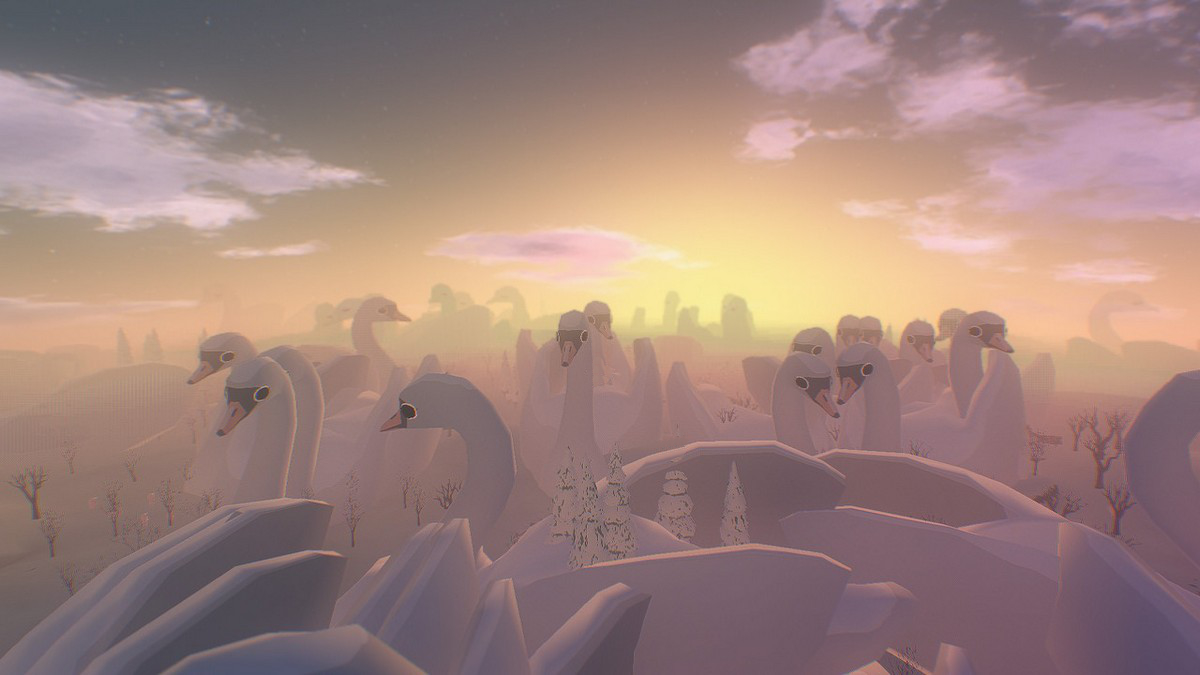
What did the say toaster say to the sea anemone? “What doesn’t hurt you can only prolong your inevitable death.”
You weren’t expecting that to be a joke, were you? No, it was just one of countless surreal encounters I had in Everything.
It’s immediately apparent Everything is no ordinary game. I began as a horse that unceremoniously flipped around like a toy, completely unanimated. I neighed at a nearby tree and it rustled its leaves in approval. Then I met a rock and stopped for a quick chat about how it liked hanging out with its other rock pals in its cluster.
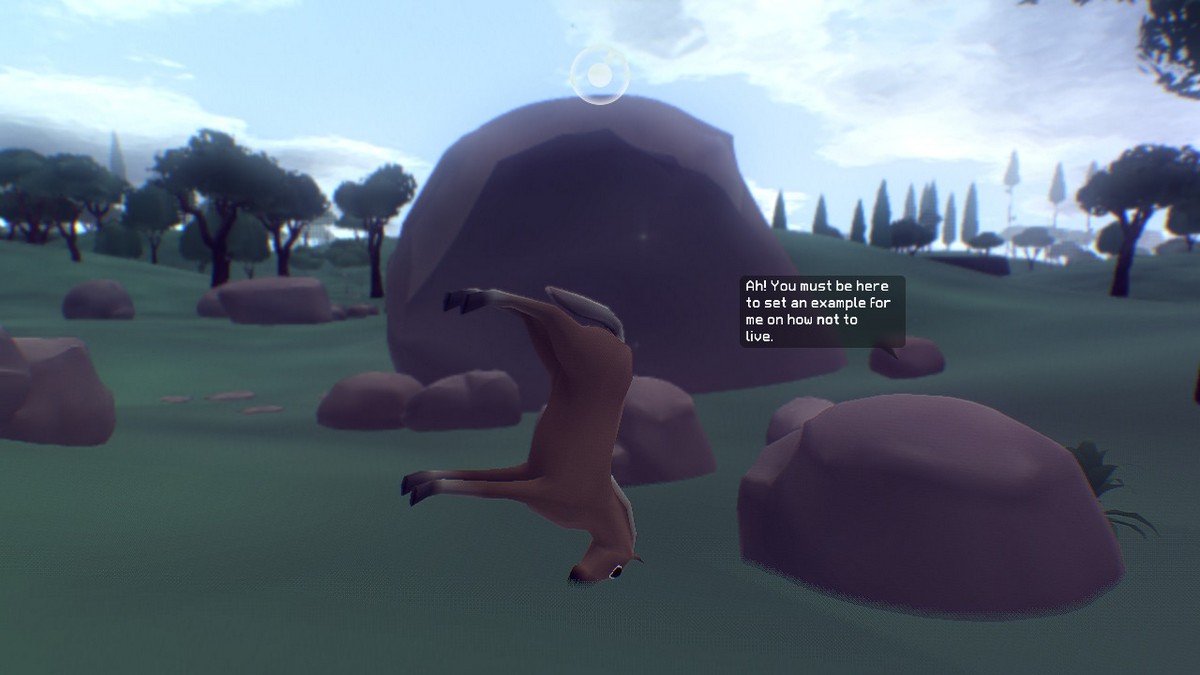
The conceit in Everything is that you can become anything you wish, from a baboon to a grand piano or an oak tree. Approach another entity in the world and you can possess it – once you’ve sung to it to build rapport, of course. Over time you’ll unlock new abilities, like being able to gather groups of things and dance together.
“Why the hell would I want to do that?” you might rightly ask. Fundamentally, Everything is a playground. It’s a things simulator. There’s a surprising novelty to becoming a new thing, buoyed by an indicator showing the percentage of things you’ve ‘collected’ in its category.
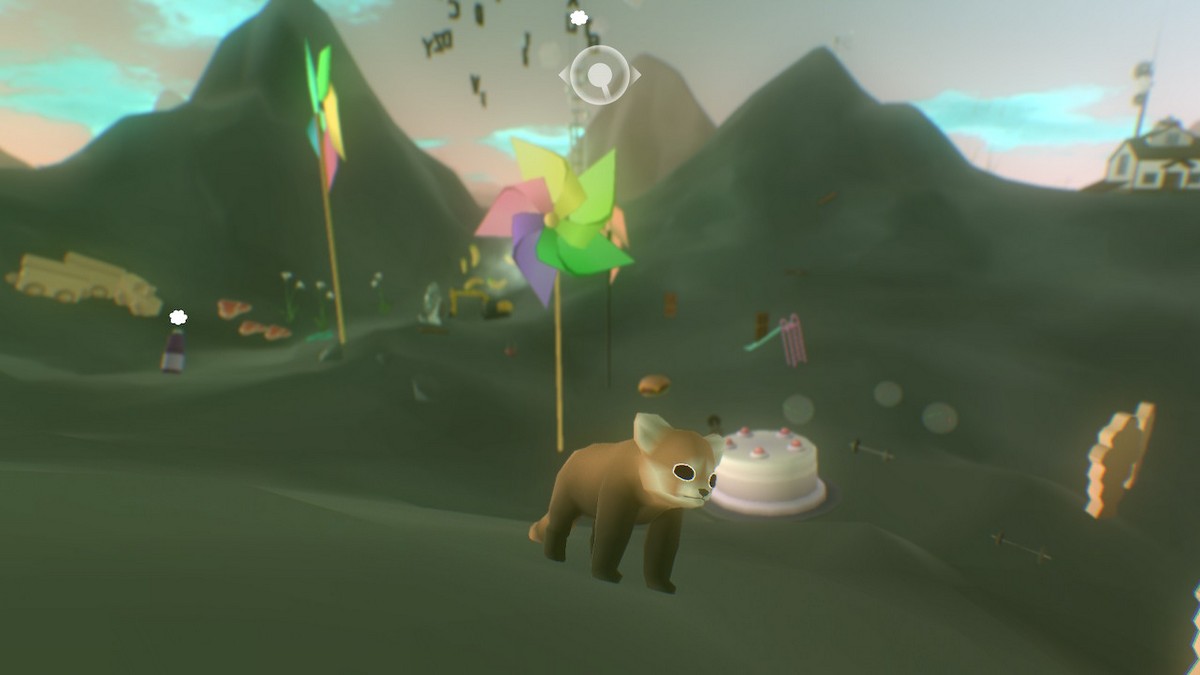
But Flight Simulator this ain’t. It’s far from a technical showcase. Creatures are rendered in rough polygons with googly eyes stuck on. Objects tumble around in a manner defying any semblance of physics, biology or common sense. It’s goofy as hell. A self-deprecating message in the game even admits that it’s a poor representation of life.
What’s remarkable, then, is that despite having the most in common with joke games like Goat Simulator, Everything is strikingly profound.

You see, perfectly accompanying the madness are soundbites from the late philosopher Alan Watts. One of the first to popularise Eastern teachings in the West, Watts espoused views still valuable decades later, such as the interconnectedness of all things. We aren’t separate from the world, Watts protests, despite what our ego and shell of a body may suggest. We are the world. All things on this earth coexist in a chaotic harmony in which one thing would not exist without the other.
Alan Watts’ philosophy is reassuring in a world which feels increasingly divided by politics, religion and country of origin. We’re all connected, not just with our fellow humans but with the dirt under our feet and the clouds above our heads.
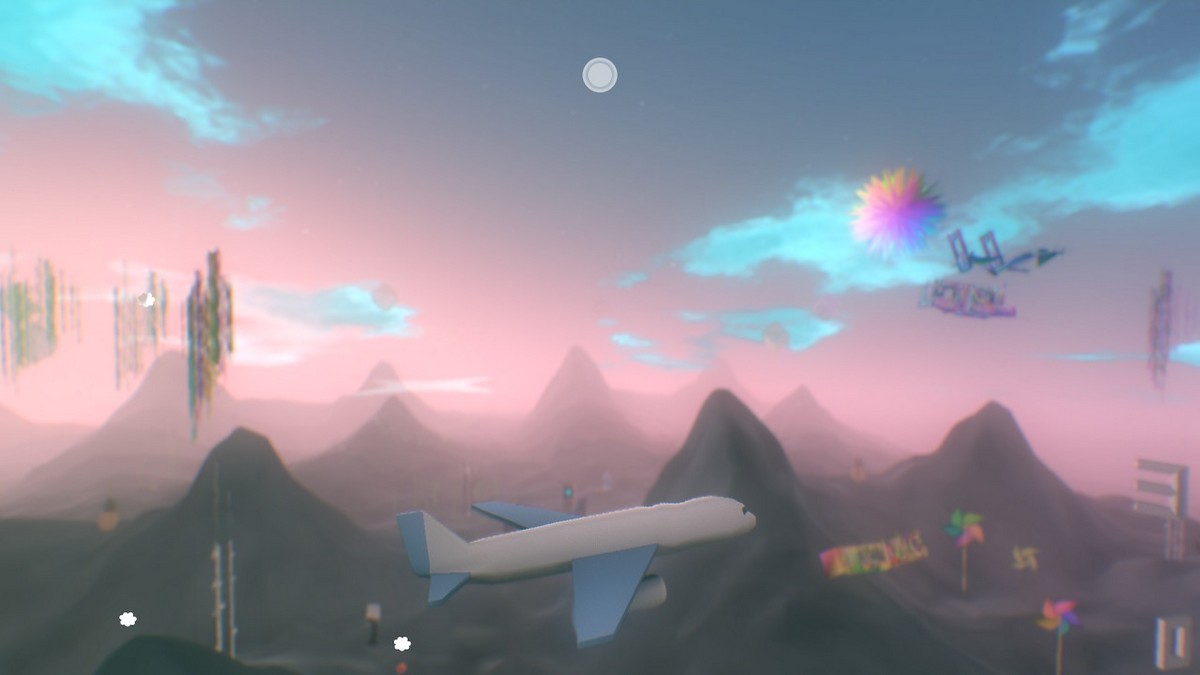
Seeking out the next nugget of wisdom from Watts provides a gentle sense of purpose, alongside the kleptomania. Through his teachings and the surprisingly introspective dialogue from the oft-mundane objects in the world is borne a wide spectrum of morals – against wealth and capitalism; squandering your life, or on the flipside, taking it too seriously; and egotism and solitude. It challenges your perspective and makes you think.
Beyond the deeper meaning, there’s joy in simply exploring this eccentric model of the world. You can expand your view, heading into the sky and becoming planets or solar systems. Or you can keep zooming into the earth on a granular level, from the insects and debris down to the pollen and bacteria and finally the minutiae of molecular structures and atoms. Smaller-scale, Everything becomes quite pretty, with depth-of-field effects isolating its subjects.
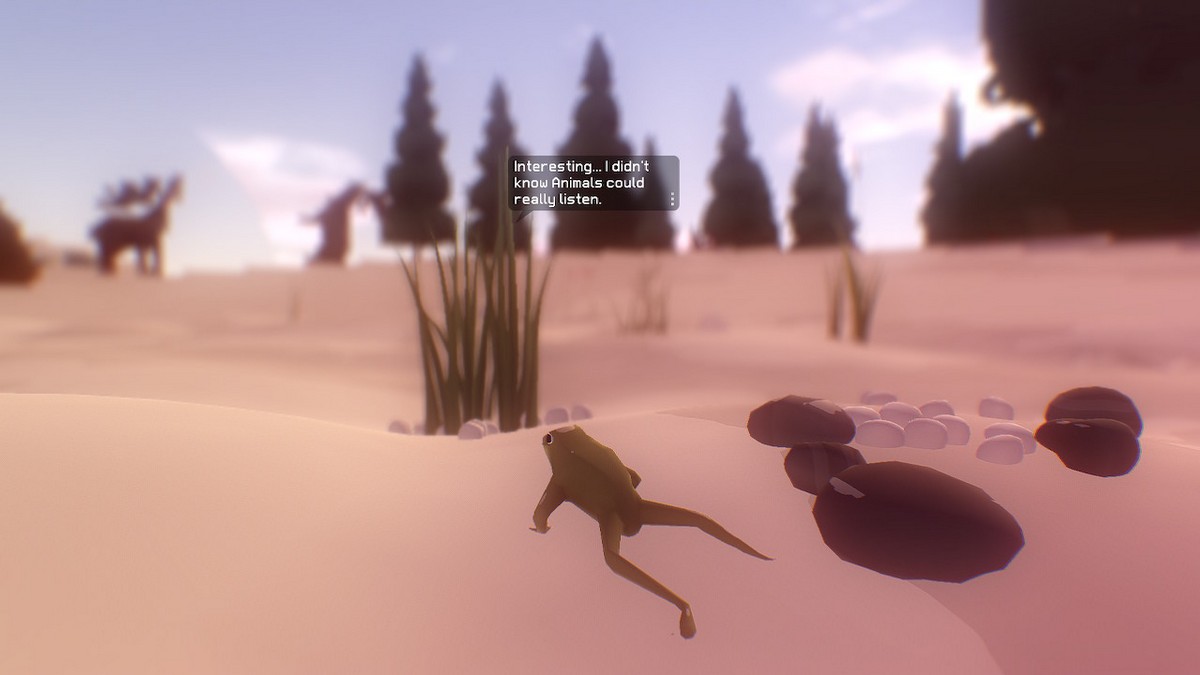
It’s seriously impressive how many things there are in Everything. Maybe it’s not everything. But it’s a solid effort. That said, there are limitations to the level of simulation. You don’t properly gain an item’s properties when inhabiting it, beyond the ability to ‘sing’ its noise. And it doesn’t show how things interrelate. You can’t, for example, see how a frog inhales oxygen and expels carbon dioxide and water molecules, eat a fly or be eaten by a snake. This would have relayed the game’s message more strongly, but I’m well aware of what an enormous undertaking it would have been to achieve such complexity.
Everything is a rough marvel of a game. It’s something you cannot take seriously yet absolutely must. You could have your worldview permanently changed. Or, like me, you could spawn a torrent of giant pigs upon the landscape and rule over them as an even larger pig king, bellowing to your disciples as they retort a thunderous chorus of oinks. The world is your oyster. Or teapot, or trombone.

[Reviewed on Switch]
